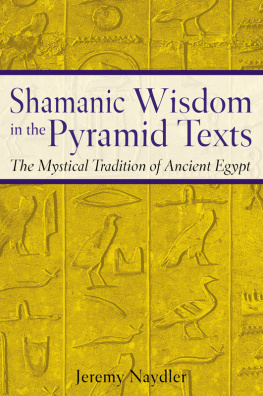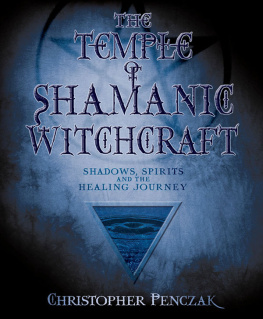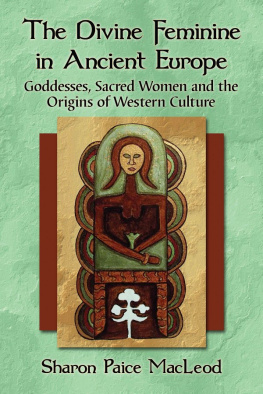
Shamanic and Mythic Cultures of Ethnic Peoples in Northern China I
On the basis of first-hand materials gathered through decades of field research and fleshed out with the authors insightful religious, cultural, and historical observations extending back to the Qing dynasty, ancient archaeological discoveries, and the legacy of Siberian peoples, this two-volume ethnological study investigates shamanic rituals, myths, and lore in northern China and explores the common ideology underlying the origins of the regions cultures.
Drawing from numerous oral myths, ancient documents, and archaeological findings, this first volume discusses the spiritual world of northern shamanism and investigates the various rituals, including ancestor worship, fertility, nature deities, blood sacrifice and rites, the worshiping of nature, and shrines. The book illuminates how these rituals and worships, animism, and ideas of the soul are imbedded in and interweave with the indigenous environment, culture, and history of the clans and people of northern China.
The book will be of great value to scholars of religion and to both anthropologists and ethnologists in the fields of shamanism studies, Northeast Asian folklore, and Manchu studies.
Fu Yuguang, a native Manchu scholar of shamanic and Manchu studies from the Jilin Institute for Ethnology, has been committed to ethnological and anthropological research on the myths, rituals, and cultures of Altaic peoples in northern China for over fifty years and has published many influential works.
China Perspectives
The China Perspectives series focuses on translating and publishing works by leading Chinese scholars, writing about both global topics and China-related themes. It covers humanities & social sciences, education, media and psychology, as well as many interdisciplinary themes.
This is the first time any of these books have been published in English for international readers. The series aims to put forward a Chinese perspective, give insights into cutting-edge academic thinking in China, and inspire researchers globally.
To submit proposals, please contact the Taylor & Francis Publisher for China Publishing Programme, Lian Sun ().
Titles in history currently include:
The History of Chinese Feudal Society
Tung-tsu Chu
Contemporary Studies on Modern Chinese History I
Zeng Yeying
Contemporary Studies on Modern Chinese History II
Zeng Yeying
Shamanic and Mythic Cultures of Ethnic Peoples in Northern China I
Shamanic Deities and Rituals
Fu Yuguang
Shamanic and Mythic Cultures of Ethnic Peoples in Northern China II
Shamanic Divination, Myths, and Idols
Fu Yuguang
For more information, please visit www.routledge.com/China-Perspectives/book-series/CPH
The publication of this book is sponsored by Ministry of Education of PRC.
First published in English 2021
by Routledge
2 Park Square, Milton Park, Abingdon, Oxon OX14 4RN
and by Routledge
52 Vanderbilt Avenue, New York, NY 10017
Routledge is an imprint of the Taylor & Francis Group, an informa business
2021 Fu Yuguang
The right of Fu Yuguang to be identified as author of this work has been asserted by him in accordance with sections 77 and 78 of the Copyright, Designs and Patents Act 1988.
All rights reserved. No part of this book may be reprinted or reproduced or utilised in any form or by any electronic, mechanical, or other means, now known or hereafter invented, including photocopying and recording, or in any information storage or retrieval system, without permission in writing from the publishers.
Trademark notice: Product or corporate names may be trademarks or registered trademarks, and are used only for identification and explanation without intent to infringe.
English Version by permission of The Commercial Press.
British Library Cataloguing-in-Publication Data
A catalogue record for this book is available from the British Library
Library of Congress Cataloging-in-Publication Data
A catalog record for this book has been requested
ISBN: 978-0-367-65412-2 (hbk)
ISBN: 978-1-003-13251-6 (ebk)
Typeset in Times New Roman
by Apex CoVantage, LLC
Contents
1 The spirit world of northern shamanism
2 Nature worship
3 Ancestor and fertility worship
4 Blood sacrifice and fire rituals
5 Rituals for nature deities
6 Tangse and jia rituals
- 1 The spirit world of northern shamanism
- 2 Nature worship
- 3 Ancestor and fertility worship
- 4 Blood sacrifice and fire rituals
- 5 Rituals for nature deities
- 6 Tangse and jia rituals
Guide
How time flies! For more than sixty years, I have been dedicated to rescuing, organizing, and studying the precious shamanic cultural legacy that has been passed down among the Altaic peoples over several thousand years. Thanks to the persistent and arduous efforts of like-minded scholars, Chinese ethnic studies and shamanic culture studies have reached out to the world. I have been fortunate to establish connections with many accomplished foreign scholars and academic societies of shamanic studies, which have helped expand my scholarly horizons, bolster my understanding, and nurture deeper insights into the study of Chinese ethnic peoples and shamanic culture. In the past few decades, some of my works and papers in these areas have been translated or introduced to academia in Korea, Japan, Russia, Finland, Germany, Italy, the United Kingdom, and the United States; and several scholars have written to learn more about obscure points of folk customs and phenomena and have expressed hopes of reading original works in this area. With the help of Professor Daniel A. Kister, Professor Liang Yanjun ( ), and Liang Yanjuns fellow translators Wu Chunxiao ( ) and Liu Ying ( , Dalian Polytechnic University), my first Chinese work, Shamanism and Mythology (), published in 1990, has now been translated into English, under the title Shamanic and Mythic Cultures of Ethnic Peoples in Northern China. It is my honour, moreover, to have had respected scholar and my good friend Mihly Hoppl take an interest in my work and encourage the publication of this work in English.
I am proficient in the almost extinct Manchu language because I grew up in a family in which the elders spoke Manchu. In 1980, I was assigned to a provincial research unit and threw myself into exploring, rescuing, and investigating the ethnic cultural heritage and traditional folk customs of the Manchu and other peoples of the endangered Altaic language family. I love Manchu history and culture so much so that I easily fitted in with ethnic groups. For more than ten years, I lived in ethnic villages, eating, working, singing, and dancing with the people, and many respected male and female shamans became my bosom friends. I learned to sing sacred chants, seek out holy objects of wood and stone in the mountains, make spirit idols, and beat the drum for sacrificial events. All this impressed me and moved me to collect my findings and publish Shamanism and Myth. At that time, shamanism was seen as a backwards superstition and so was banned by the government, but this book took a fresh, positive approach. Bringing to public attention the mystique of northern shamanic culture, it described how shamans serve local people who have no access to modern medical treatment by using traditional herbs and practices to treat disease; it brought to light the time-honoured northern creation myth War in Heaven and the ancient traditions of inspired shamanic utterances and divination; it aimed to show that shamans are hardworking, trustworthy masters of clan survival, peace, and harmony.






